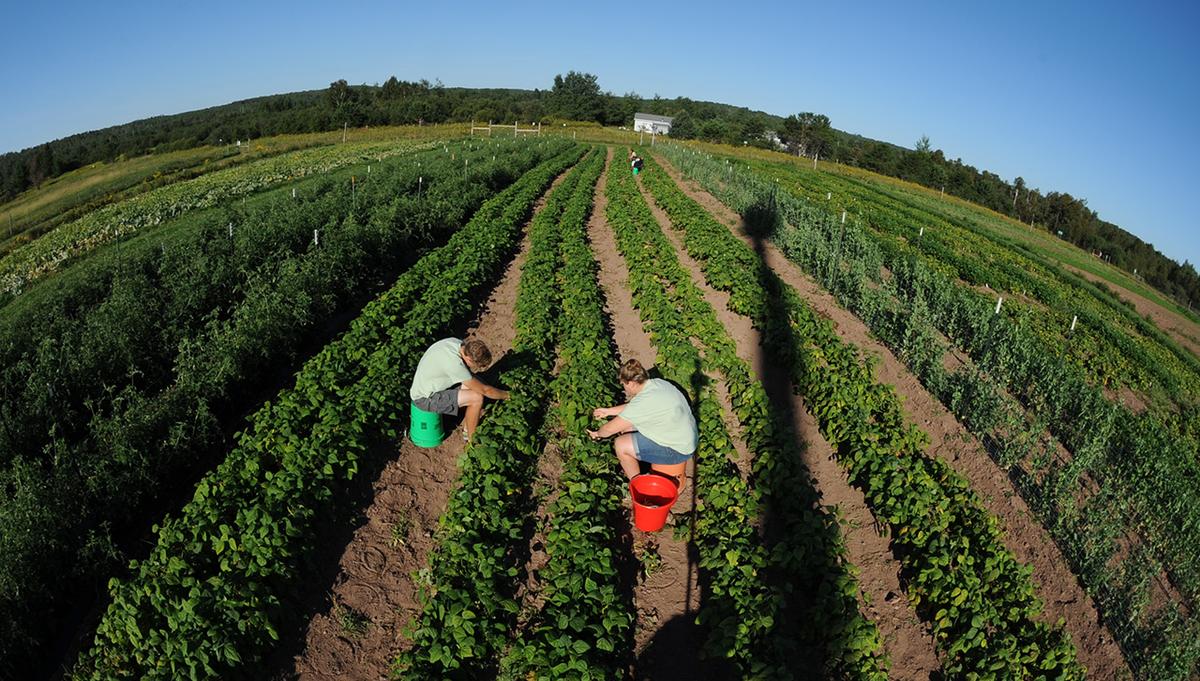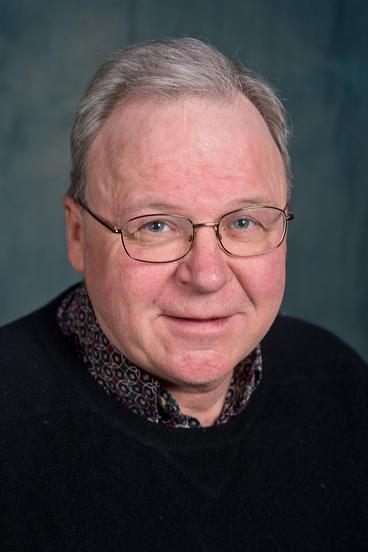Randel Hanson, director of the UMD Land Lab and Sustainable Agriculture Project (SAP) Farm, has received the Endowed Chair in Agricultural Systems position from the University of Minnesota’s College of Food, Agricultural and Natural Resource Sciences.
This fellowship means Hanson is able to take a break from his teaching responsibilities over the next year and instead work with campus and community supporters to ensure the long term development of the UMD Land Lab.
Many Duluthians know of Hanson’s work to revitalize land associated with the former Northeast Agricultural Experimental Station (from 1912–1976) by creating a 10-acre organic farm (the Sustainable Agriculture Project—SAP) where UMD students learn to grow organic vegetables served in UMD’s Dining Services. The success of the project in turn evolved into developing a “land lab” where students and faculty could research sustainable food, water, and energy practices in collaboration with people and organizations in the western Lake Superior Region.
“This Endowed Chair position is an honor and a recognition of the importance of the UMD Land Lab for economic development, enhancing our quality of life, and strengthening the ecological stewardship of our region. I’m looking forward to reflecting the best practices of our land grant institution by helping UMD seize this opportunity in becoming a leader in sustainability as we recognize the economic, ecological and human health benefits of a more robust regional food and agriculture system.”
The broad goal of the UMD Land Lab, explains Hanson, is to “leverage the considerable social, cultural and scientific resources of UMD to reclaim agriculture as a key driver of regional sustainability. We can provide new research opportunities for faculty and students and improve our region. Rebuilding regional agriculture is an opportunity multiplier, positively impacting social inclusion, employment and poverty, water issues, energy use and biodiversity.”
Hanson adds that he remains deeply committed to UMD’s Land Lab and appreciates the overwhelming supportive response from students and the community regarding the value it bring to campus and the region.
About the Fellowship
The Endowed Chair in Agricultural Systems position is awarded by the Minnesota Institute for Sustainable Agriculture, which is a partnership between the College of Food, Agricultural and Natural Resource Sciences at the University of Minnesota and the Sustainers’ Coalition, a group of non-profit community organizations.
The Chair is dedicated to stimulating discussion, new ideas, and leadership in agriculture leading to a healthy environment, vital communities, and economic profitability over the long term.
Search committee members recognized the UMD Land Lab’s impact already, and they hope to see it continue to develop. “They believe the UMD Land Lab and SAP Farm is a model to advance sustainability practices for universities and their communities,” says Hanson.
UMD Farm Named One of the Country’s Best
In addition to the Endowed Chair position, the UMD Land Lab and SAP Farm is celebrating being named one of the 35 best college farms in the country by College Rank, a website dedicated to evaluating and ranking college programs and experiences.
Criteria include the farm’s integration with sustainability and community programing.
The UMD Land Lab and SAP Farm was ranked number 19 and lauded for providing students with a “solutions-oriented approach… an organic farm with a farm-scale wind turbine, climate resilient water systems, and biodiversity enhancement.”
Its relationship with UMD’s Dining Services was also lauded, as 90% of the food grown on the farm is served to UMD’s students, faculty, and staff. Hanson says students working on the farm value the concrete opportunity to help evolve the University’s food system. “We couldn’t be doing this without the visionary collaboration with our UMD Dining Services. They deserve a lot of credit for their creativity in advancing sustainability and responding to campus and community desires for healthy, local foods,” noted Hanson.
“In 2016, the UMD Land Lab delivered tens of thousands of pounds of organically grown produce to Dining Services. We also hosted more than a thousand students in one form or another at the farm over the course of the year. This kind of landscape scale experiential learning, where students eat their homework, is recognized here as exemplary in the U.S. context. In this, for sure, we're a leader.”
Certifying Organic
After years of growing according to organic practices, the UMD Land Lab and SAP Farm is embarking on a process in 2017 to become third-party certified as an organic operation by the Midwest Organic and Sustainable Education Service (MOSES).
MOSES organizers say being certified organic enables the SAP Farm’s soil performance to improve, increase yields, and increase the biodiversity of the land.
The process of becoming certified organic involves providing a detailed description of the operation and a history of the inputs, land management, and soil improvement practices applied to the farm for a minimum of three years.
About the UMD Land Lab
Hanson has been focused on developing the Land Lab since 2009. Its mission is to engage teaching, research, and public engagement related to sustainable food and agricultural systems within the context of sustainable water, energy and biodiversity systems.
Its three functions are:
- A university farm that exposes more than 1,000 students each year to an experiential education
- A community food systems and sustainability incubator
- A land-based research lab around sustainable food, water, energy and biodiversity systems

